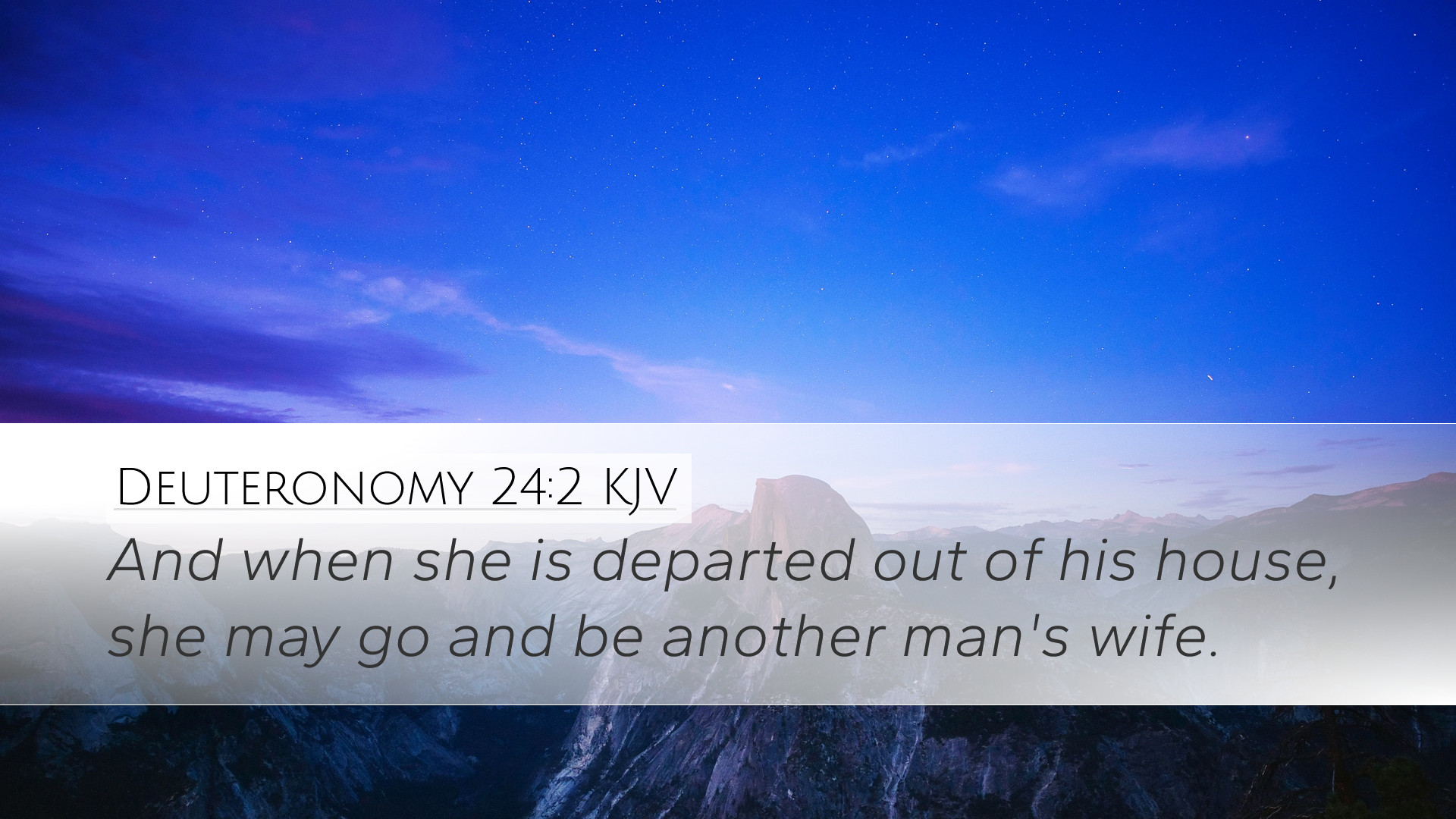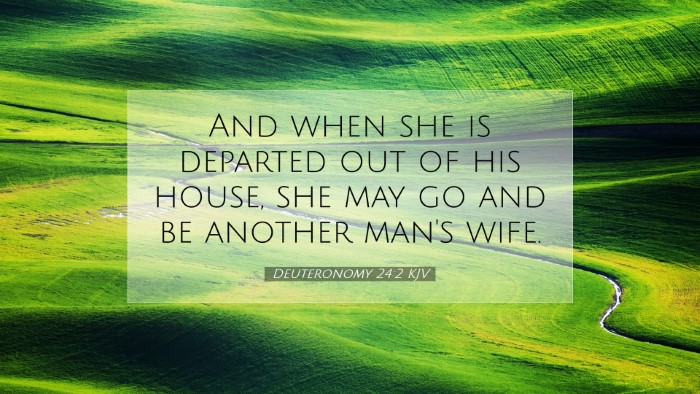Commentary on Deuteronomy 24:2
Verse Context: Deuteronomy 24:2 states, "And when she is departed out of his house, she may go and be another man's wife."
Introduction
Deuteronomy 24:2 is a pivotal verse within the Mosaic law, addressing matters concerning divorce and remarriage. This passage, along with its surrounding verses, provides insight into the social and moral framework of Israelite life. It is essential for pastors, students, theologians, and scholars to understand the historical and cultural implications of divorce in ancient Israel.
Key Insights
- Divorce Legitimacy: Matthew Henry notes that the regulation indicates a degree of legitimacy to divorce, suggesting that the law acknowledges personal liberty and the reality of marital discord.
- Protection of Women: Albert Barnes emphasizes that the law serves to protect women from being treated as property in the case of divorce. The stipulation that a divorced woman could remarry signifies her value and autonomy.
- Remarriage Considerations: Adam Clarke indicates that the allowance for remarriage underscores the understanding that life circumstances change and that relationships should not be unendingly burdensome.
- God's Heart for Justice: The allowance for a divorced woman to remarry is viewed through a lens of compassion, showing God's concern for justice and humane treatment in difficult situations.
Theological Implications
This verse raises significant theological discussions around the concepts of marriage, divorce, and grace. The Old Testament law, while strict, also includes provisions that reflect God’s mercy and care for human frailties.
Marriage as a Covenant
In traditional Judeo-Christian thought, marriage is viewed as a sacred covenant. The rigorous discussions around divorce reflect not only the importance of the marital bond but also the dire consequences when it is broken. Scholars assert that this verse invites deeper exploration of covenantal faithfulness.
Moral and Ethical Considerations
With the permission for remarriage, one could argue that ethical implications arise. How do we understand the balance between justice for the individual and faithfulness to God’s commandments? Pastoral interpretations often underscore the necessity of repentance and reconciliation while acknowledging that human relationships can be complex and fraught with challenges.
Cultural Background
The evolution of marriage and divorce in ancient Israel reflects deep-rooted cultural norms and practices. The patriarchal structure often led to women being vulnerable in situations of divorce. Understanding this cultural backdrop is essential for interpreting the intent of the laws.
Sociological Dynamics
Matthew Henry suggests the interplay of social dynamics where men held the power to initiate divorce, while women, upon being divorced, had to navigate life outside of their marriages. This power imbalance necessitated laws that provided some sense of security for women.
Application for Today
In the modern era, the principles underlying Deuteronomy 24:2 resonate with ongoing discussions about divorce, remarriage, and family dynamics. It invites believers to reflect upon God’s grace and the possibility of new beginnings post-marriage failures.
Pastoral Care
This verse calls pastors to foster a compassionate understanding for those who have experienced divorce. The church’s role could be one of healing, assisting individuals through their struggles and encouraging them in their journeys towards new relationships.
Community Implications
Church communities are often a crucial support system for individuals dealing with the aftermath of divorce. Acknowledging the dignity and worth of divorced individuals aligns with biblical tenets of love and acceptance, providing a broader application of this verse’s principles.
Conclusion
Deuteronomy 24:2 serves as a window into the complexities of human relationships from a biblical perspective. Combining insights from various public domain commentaries allows for a richer understanding of the text, situating it within both historical and contemporary contexts. The themes of justice, mercy, and the possibility of redemption are timeless, continuing to inspire thoughtful reflection and pastoral application.


